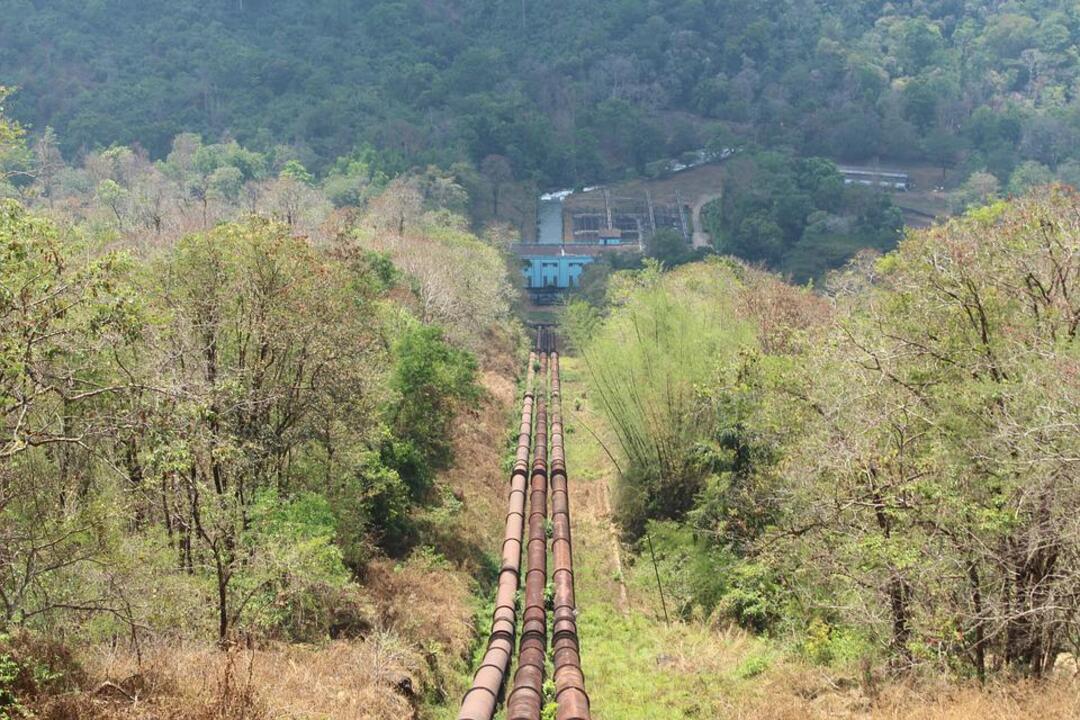-
Spanish and German leaders discuss alternatives to Russian gas

Spanish Prime Minister Pedro Sanchez met German Chancellor Olaf Scholz in Germany on Tuesday (August 30) to discuss national security and ways to cope with the EU’s looming energy crisis, the Anadolu Agency reported.
Sanchez told a joint press conference in Berlin: “Spain is willing to use all of its capacities to help countries like Germany, which are suffering more from Putin’s energy blackmail."
He emphasized that Spain is home to 30% of all Europe’s liquid natural gas (LNG) regasification capacity.
Both Sanchez and Scholz agreed on the need to connect the Iberian Peninsula’s largely isolated gas infrastructure with the rest of the EU.
Indirectly, this agreement puts pressure on France to reconsider its pessimistic view of the Midcat pipeline that would connect it with Spain through the Pyrenees mountains.
Spanish officials argue that the pipeline could be built in a year, while French authorities have said it would take much longer than that.

As a “Plan B,” Sanchez added that Spain is considering a pipeline with Italy to “remove the bottlenecks.”
Meanwhile, Scholz sent a calm note about Germany’s ability to cope with Russia cutting off natural gas supplies.
Gazprom is set to suspend gas supplies through the Nord Stream 1 pipeline due to "maintenance" on Wednesday for three days, sparking concerns that the shutdown could be more permanent.
Nord Stream: Russian pipeline resumes pumping gas to Europe
“You can’t say ‘we’re through with our problems,’ but you can say we are much more relaxed about the situation,” said Scholz, referring to gas reserves that are around 83% full and the rapid set up of new LNG terminals.
He said: “We are also firmly convinced that the current price formations on the electricity exchanges do not reflect the real situation.”
On Monday (August 29), German power prices for next year broke the €1,000 ($999.80) per megawatt hour threshold for the first time.
The EU's plan to cut gas use by 15% comes into effect from today
Now that Germany has more or less secured energy supply for the winter, the German chancellor said: “We can now look to the question of how we can prevent exaggerated pricing.”
During the joint presser, Sanchez also shared how Spain is moving to tax windfall profits of the energy companies benefiting from high electricity prices.
Source: aa
You May Also Like
Popular Posts
Caricature
BENEFIT Sponsors BuildHer...
- April 23, 2025
BENEFIT, the Kingdom’s innovator and leading company in Fintech and electronic financial transactions service, has sponsored the BuildHer CityHack 2025 Hackathon, a two-day event spearheaded by the College of Engineering and Technology at the Royal University for Women (RUW).
Aimed at secondary school students, the event brought together a distinguished group of academic professionals and technology experts to mentor and inspire young participants.
More than 100 high school students from across the Kingdom of Bahrain took part in the hackathon, which featured an intensive programme of training workshops and hands-on sessions. These activities were tailored to enhance participants’ critical thinking, collaborative problem-solving, and team-building capabilities, while also encouraging the development of practical and sustainable solutions to contemporary challenges using modern technological tools.
BENEFIT’s Chief Executive Mr. Abdulwahed AlJanahi, commented: “Our support for this educational hackathon reflects our long-term strategic vision to nurture the talents of emerging national youth and empower the next generation of accomplished female leaders in technology. By fostering creativity and innovation, we aim to contribute meaningfully to Bahrain’s comprehensive development goals and align with the aspirations outlined in the Kingdom’s Vision 2030—an ambition in which BENEFIT plays a central role.”
Professor Riyadh Yousif Hamzah, President of the Royal University for Women, commented: “This initiative reflects our commitment to advancing women in STEM fields. We're cultivating a generation of creative, solution-driven female leaders who will drive national development. Our partnership with BENEFIT exemplifies the powerful synergy between academia and private sector in supporting educational innovation.”
Hanan Abdulla Hasan, Senior Manager, PR & Communication at BENEFIT, said: “We are honoured to collaborate with RUW in supporting this remarkable technology-focused event. It highlights our commitment to social responsibility, and our ongoing efforts to enhance the digital and innovation capabilities of young Bahraini women and foster their ability to harness technological tools in the service of a smarter, more sustainable future.”
For his part, Dr. Humam ElAgha, Acting Dean of the College of Engineering and Technology at the University, said: “BuildHer CityHack 2025 embodies our hands-on approach to education. By tackling real-world problems through creative thinking and sustainable solutions, we're preparing women to thrive in the knowledge economy – a cornerstone of the University's vision.”
opinion
Report
ads
Newsletter
Subscribe to our mailing list to get the new updates!






















